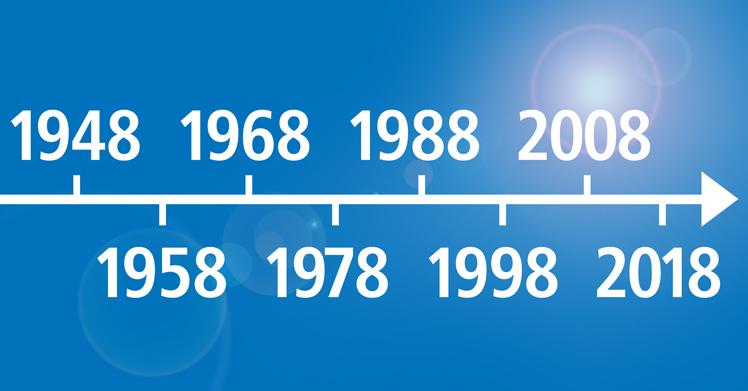Paul Worskett takes a look at the lifecycle of the NHS so far as it enters its 70th year and contemplates what the next decade might hold. As dentistry enters ‘old age’ will there be more funding to meet it’s ever-growing and increasingly complex needs? Will the gap between NHS and private charges continue to shrink until it becomes a moot point? Paul, a principal dentist in a prototype B practice, explores these issues…
Paul: ‘Much like patients, NHS dentistry has been through several growth stages. Its infancy was dominated by extractions and dentures while the adolescent years saw the introduction of the air-rotor and amalgam restorations. Later, restorations matured with the introduction of root fillings and crown and bridgework. As the NHS approached middle age, like the human counterpart, periodontal disease took a more significant role and, with maturing knowledge, prevention has taken centre stage. So as NHS dentistry moves into old age, what are we likely to see in 10 years’ time?
Unfortunately, the needs and resources required for the NHS in old age are similar to humans. The number of older people has increased and they need more sophisticated, and expensive treatments to keep them as healthy as possible. Yet, it is generally acknowledged that NHS resources are stretched to the limit with no realistic solution on the horizon. There are so many areas of the NHS all competing for the same limited budget.
So where does NHS dentistry stand? I am afraid it is not at the front of the queue. I am not convinced the Government regards dentistry as a priority for NHS funding and they see patient charges as a way of subsidising NHS dentistry, if not the wider NHS. As the patient’s charge increases, this will only encourage more patients to choose private alternatives, as the cost difference narrows and ultimately reverses and it becomes cheaper to have some treatments privately.
“I am not convinced the Government regards dentistry as a priority for NHS funding and they see patient charges as a way of subsidising NHS dentistry, if not the wider NHS.”
As in the wider NHS, the range of dental treatments required to treat a larger population has expanded significantly over time and, quite simply, there is not enough money available to provide a fully comprehensive service for all of the population. So, I think a core service is inevitable. Whether that means restricting the types of treatment available on the NHS or restricting the groups of patients who can be treated, remains to be seen.
I think we will still have NHS dentistry in 10 years’ time, but it might be a more restricted and limited service; prioritising prevention, pain relief and basic dental care, and hopefully without UDA’s!’
If you are an NHS dentist, or a former NHS dentist now working in private practice, and want to share your views on working within NHS Dentistry, please take part in our NHS Confidence Monitor Survey
About Paul Worskett
Paul has been the principal of Amblecote Dental Care in the West Midlands since 1988. Paul has extensive experience of dentistry and has a special interest in cosmetic and implant dental care. He has had 2 papers published in the BDJ and Dental Update. Amblecote Dental Care is a prototype blend B practice as part of the on-going NHS contract reform process, having initially been a pilot practice since 2011.
